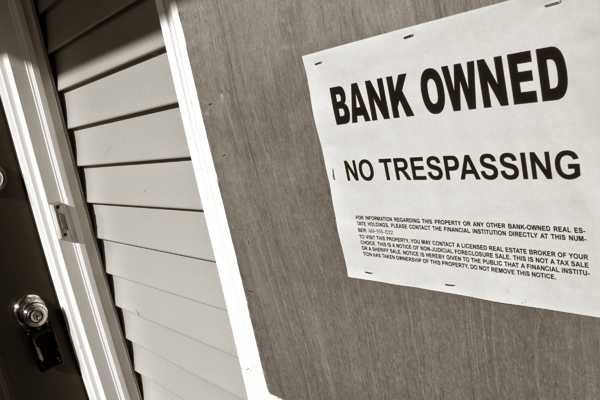
Introduction
A question I've been getting a lot lately: "Do you need a college degree to practice real estate?"
Whether you're exploring a new career path in the real estate industry or you're a high Read more...
Introduction
A question I've been getting a lot lately: "Do you need a college degree to practice real estate?"
Whether you're exploring a new career path in the real estate industry or you're a high school student contemplating your future, understanding the educational requirements to become a real estate professional is critical. The answer is more complex than you might think, as conditions and expectations can vary. I wanted to write an article to clarify these ambiguities, equipping you with the knowledge you need to navigate your real estate career path successfully.
Navigating the world of real estate presents a wealth of opportunities. Gaining insights into whether or not a college degree is crucial for success in this field could significantly influence your career trajectory and future endeavors. Stay tuned as I break down the historical and current educational prerequisites, the role a degree might play, and alternative pathways to success in real estate.
Historical Perspective
The real estate industry, like many others, has seen considerable evolution over the years, including its educational requirements. In the early 20th century, there were few formal prerequisites to becoming a real estate agent. Anyone with a knack for sales and a strong network could enter the industry. The profession needed to be regulated, and the concepts of licensing and formal education in real estate were virtually nonexistent back in the day.
However, as the industry grew and the transactions became more complex, it became apparent that a certain level of knowledge and professionalism was necessary to ensure fair and ethical dealings. The U.S.'s first real estate license law was established in California in 1917, primarily responding to fraudulent land sales.
In the years that followed, more states joined in, implementing their own licensing laws and progressively ramping up their educational demands. By the mid-20th century, it had become commonplace for states to mandate that aspiring real estate agents undertake courses covering a range of subjects, including real estate law, ethics, and practical applications.
The focus shifted towards formalizing the industry and improving its standards. However, it's essential to note that while the requirement for pre-licensing education and passing a state-specific licensing exam became common, obtaining a college degree was, and still is, generally not a prerequisite for practicing real estate in most jurisdictions.
In the 21st century, educational requirements have continued to evolve, with increased emphasis on continual learning, professional development, and ethical behavior. Today, real estate education focuses on transactional knowledge and a holistic understanding of the industry, including market analysis, property management, real estate financing, and more. This progression showcases our industry's commitment to ensuring that its professionals are well-equipped to serve the best interests of their clients.
Current Educational Requirements
The educational requirements to practice real estate in the United States differ from state to state. There is no such thing as a “national real estate license” that would allow the holder to practice in every state. However, one common thread across all states is that a college degree is not a requirement to obtain a real estate license. Instead, each state requires a specific number of pre-licensing education hours and completing a state licensing exam.
To give you a snapshot: In California, aspiring real estate salespersons need to complete 135 hours of pre-licensing education, while in Texas, the requirement stands at 180 hours. In In New York, only 77 hours of pre-licensing education are required. While each state sets specific pre-licensing education hours, it's essential to research your state's requirements to ensure you meet the criteria.
In terms of baseline education, in some states, you must have a high school diploma or a GED to be eligible to obtain a real estate license in some states (not California). This requirement underscores the industry's commitment to a basic level of literacy and numeracy skills needed to operate in the real estate world effectively.
Pre-licensing courses are a critical aspect of the real estate licensing process. These courses, often offered by real estate schools like ADHI Schools have offerings both online and in-person that cover a broad range of topics. They include property law, real estate financing, contracts, property management, real estate ethics, and more. These courses equip you with the necessary knowledge to navigate the complexities of real estate transactions and provide excellent service to your future clients.
After completing the required pre-licensing education hours, the next step is passing the real estate licensing exam. This exam tests your understanding of real estate laws, principles, and concepts. In some states, the exam consists of a national portion covering general real estate principles and practices and a state-specific portion that tests knowledge of your state's real estate laws. California only has a state specific requirement.
While the requirements may vary, the path to becoming a licensed real estate professional doesn't necessitate a college degree. Instead, it calls for a dedication to learning, understanding, and applying real estate-specific knowledge and skills.
The Role of a College Degree in Real Estate
While it's clear that a college degree is not required to obtain a real estate license, the question remains: Does a degree confer any advantages in the real estate industry? The answer largely depends on one's career goals, personal learning style, and the specific real estate area they wish to pursue.
A college degree, particularly in fields related to business, finance, law, or marketing, can offer a strong foundation for a career in real estate. Such a degree can provide an understanding of broader economic trends, marketing strategies, negotiation techniques, and legal principles that could benefit the industry. It also often helps develop soft skills, such as critical thinking, communication, and problem-solving, which are invaluable in interacting with clients and navigating complex transactions.
Going to college doesn't just offer textbook knowledge or job-specific skills, it can also provide essential tools for a career like real estate. The social skills and other "soft" abilities you gain during your time in college can be a significant advantage in becoming a successful realtor.
College exposes you to people from all walks of life, different cultures and mindsets. As a realtor, you'll work with a broad range of clients, and understanding diverse perspectives can help you connect with them more effectively, communicate clearly, and meet their needs.
Working on college group projects can also teach you about teamwork and problem-solving, two key skills in real estate. Whether it's negotiating a sale or resolving a buyer-seller conflict, these abilities will come in handy.
Internships, part-time jobs, or volunteering during college can help you become responsible and efficient in managing your time - crucial traits for a realtor juggling multiple properties, clients, and appointments.
Lastly, college helps you to navigate the 'real world' in a supportive environment before stepping into it full-time. So, a college degree isn't just a mark of your academic achievement; it's a sign that you have the social skills, understanding, and work ethic needed to thrive as a realtor.
For those considering roles beyond being a sales agent or broker - such as a real estate developer or a corporate real estate manager - having a college degree may be preferred or even required by some employers. A degree could be advantageous if you aim to work in high-end markets or with a demographic that values educational credentials.
However, many successful real estate professionals have built thriving careers without a college degree. These individuals often emphasize the importance of on-the-job experience, industry-specific education, networking, and sales skills, which they argue are as important, if not more so, than a formal college education. They note that real estate is a results-oriented business, where success is typically measured by your ability to close deals and satisfy clients rather than by your academic credentials.
So, whether you are a high school graduate, have a GED, or hold a Ph.D., remember that your success in real estate ultimately depends on your industry knowledge, dedication to serving your clients, and passion for the profession. Whether or not to pursue a college degree is a personal decision and should align with your career aspirations, learning style, and professional goals.
Alternatives to a College Degree
While a college degree can provide a broad base of knowledge and skills, there are other pathways to success in real estate. Many alternatives can provide specialized, industry-specific knowledge that can prove just as valuable, if not more so, in building a successful real estate career.
One prominent alternative are real estate schools often required to obtain a license in a given state. These specialized institutions offer pre-licensing courses and a variety of post-licensing education options designed to keep real estate professionals updated on the latest trends, laws, and strategies in the industry. Real estate schools can provide a direct route into the profession, allowing you to gain the specific knowledge and skills needed to pass your state's licensing exam and succeed.
Continuing education is another critical aspect of a real estate career. Whether attending seminars, taking additional courses, or subscribing to industry publications, continuous learning is key to staying competitive in this dynamic industry. Moreover, many states require real estate professionals to complete continuing education courses to renew their licenses. Mentorship and on-the-job experience are also invaluable. Working with a seasoned professional can offer insights beyond textbooks, providing practical knowledge about client relationships, negotiation tactics, and local market conditions.
Lastly, certifications and designations can enhance a real estate professional's credibility and expertise. Various organizations offer these credentials in residential and commercial property, property management, appraisals, and more. Some of the most recognized designations include the Certified Residential Specialist (CRS), the Certified Commercial Investment Member (CCIM), and (for those in the property management industry) the Certified Property Manager (CPM). These designations can distinguish you as a specialist in a particular real estate area, making you more attractive to clients and employers.
At the end of the day, the key attributes for success in real estate go beyond formal education. Critical thinking, effective communication, negotiation skills, a solid work ethic, and a constant desire to learn are vital. So whether or not you pursue a college degree, remember that your skill set, determination, and commitment to your clients and the profession will largely determine your success in real estate.
As we have explored throughout this blog, the role of a college degree in the real estate industry can be variable. While some real estate professionals leverage their college education to enhance their business and analytical skills, others have found equal success by pursuing alternate routes, such as attending real estate schools or relying heavily on on-the-job experience and mentorship.
So, does one need a college degree to succeed in real estate? While many of the soft skills learned in college will certainly be a benefit to the real estate licensee, it’s not a hard requirement. While a degree can certainly be beneficial, it's not a mandatory requirement in most states nor the sole determinant of success. Much of what makes a successful real estate professional boils down to characteristics that aren't necessarily taught in a classroom: persistence, interpersonal skills, integrity, market understanding, and a commitment to continuous learning.
In the end, if you're considering a career in real estate, it's essential to evaluate your goals, strengths, and resources. Whether your path includes a college degree or not, remember that education — in all its forms — is a lifelong journey. In real estate, as in any industry, the willingness to learn, adapt, and grow is the cornerstone of a successful career.
As always, if you are interested in obtaining your real estate license and building a career in real estate visit www.adhischools.com call us at 888-768-5285.
Love,
Kartik
|
A foreclosed home is a property repossessed by a lender, typically a bank, due to the homeowner's inability to meet their mortgage obligations. When a borrower fails to make timely mortgage payments, Read more...
A foreclosed home is a property repossessed by a lender, typically a bank, due to the homeowner's inability to meet their mortgage obligations. When a borrower fails to make timely mortgage payments, the le
|
Imagine a young couple finally stumbled upon a charming old Victorian house nestled at the end of a quiet cul-de-sac. Smitten by its ornate design and quaint charm, they quickly decided this was the home Read more...
Imagine a young couple finally stumbled upon a charming old Victorian house nestled at the end of a quiet cul-de-sac. Smitten by its ornate design and quaint charm, they quickly decided this was the home they wanted to start their new chapter in. As they navigated the escrow process, Sarah and Tom
|

Whether you're a first-time homebuyer, a student at our real estate school, or a professional within the real estate industry, trust and transparency are critical factors in your interactions and transactions. Read more...
Whether you're a first-time homebuyer, a student at our real estate school, or a professional within the real estate industry, trust and transparency are critical factors in your interactions and transactions. An essential component of this transparency is the real estate license number. Every licensed real estate professional is issued a unique identifier: a license number. This number is not merely an administrative detail but a tool to uphold professionalism and instill confidence in the industry.
Looking up a real estate license number is an extra step in an already complex process. However, it's a task that carries significant importance. Firstly, it allows clients to verify the credentials of a real estate professional, ensuring that they are dealing with a licensed individual with the necessary training and competence. This can help protect clients from fraudulent practitioners or those who don't have the necessary credentials.
Additionally, for real estate professionals, verifying a license number can provide insight into a colleague's professional background and standing, such as any disciplinary actions taken against them. It fosters accountability within the profession and is an essential part of due diligence in transactions like referrals and collaborations.
In essence, checking a real estate license number is a straightforward measure that enhances trust and transparency. It's an essential step in ensuring the legitimacy of interactions in real estate. As we delve deeper into this topic, we will explore what a real estate license number is, how to look one up, and why this simple check can significantly impact your real estate journey.
Understanding What a Real Estate License Number Is
A real estate license number is a unique identifier, much like a badge of legitimacy, assigned to each real estate professional who has successfully passed their real estate exam and received licensing from their state's regulatory body. This distinct number serves as proof of a professional's eligibility to conduct real estate transactions within their respective state. This applies to various roles in the industry, whether one is a real estate broker, an agent, an appraiser, or any other certified professional in the field.
However, a real estate license number provides more than proof of licensure. It is a gateway to a wealth of information about the professional's background and track record. When you look up a real estate license number, you can typically find details such as:
The licensee's full name.
The licensee's professional standing (whether active, inactive, or retired licensee).
The license status (whether it's current, expired, suspended, or revoked).
Any disciplinary actions taken against the licensee by the regulatory body.
The dates of issue and expiration of the license.
The licensee's areas of specialty or additional certifications.
Details of the licensee's affiliated brokerage, if applicable.
It's important to note that the specific details accessible can vary between states, as each state's regulatory body may have different rules and regulations regarding the transparency of license information.
Understanding and using this information effectively can help you make informed decisions in your real estate transactions. Whether you're confirming an agent's credentials, considering hiring, or verifying the standing of a peer, understanding what a real estate license number is and the information it provides is a key step in confidently navigating the real estate landscape.
Situations When You Might Need to Lookup a Real Estate License Number
You should look up a real estate license number in several situations. Here are some common scenarios:
Hiring a Real Estate Agent or Broker: If you're a client preparing to embark on a real estate transaction, hiring a licensed professional to guide you is essential. Looking up their real estate license number allows you to verify their standing, check for any disciplinary actions, and ensure they can legally assist with your real estate needs. It provides a level of reassurance about the professional's qualifications and credibility.
Verifying a Professional's Credentials: In some instances, you may need to confirm the credentials of a real estate professional. For example, suppose you're another real estate agent considering a partnership or a client looking for specialist services. In that case, you should check whether the professional holds the necessary certifications or specialties.
Filing a Complaint: Unfortunately, there might be circumstances when you're unsatisfied with a real estate professional's service, suspect malpractice, or need to resolve a dispute. In these cases, you would need the real estate license number to file a formal complaint with the relevant state licensing board. The licensing board uses the number to identify the individual involved and investigate the matter appropriately.
Conducting Due Diligence: For professionals involved in complex transactions, such as real estate lawyers or investors, looking up a license number may be necessary in their due diligence process. This process can help verify the identities and credentials of all involved parties, ensuring compliance with legal requirements.
For Journalism or Research Purposes: Journalists, researchers, or anyone conducting a study on real estate markets might need to look up real estate license numbers to gather information for their projects. License information can provide valuable insights into market trends, regulatory compliance, or professional demographics.
Looking up a real estate license number can serve various purposes, all centered around ensuring credibility, accountability, and transparency within the real estate industry. It's a simple yet effective tool for safeguarding the interests of all parties involved in real estate transactions.
Step-by-Step Guide on How to Lookup a Real Estate License Number
Looking up a real estate license number is usually a straightforward process - far easier than finding out who owns a particular property. However, please note that the specifics might vary slightly from state to state due to differences in real estate regulations and the design of each state's real estate commission website. Here's a general guide on how to do this:
Identify the Relevant State Real Estate Commission Website: Each state has its own Real Estate Commission or similar regulatory body overseeing real estate professionals' licensing. You must visit the appropriate website for the state where the real estate professional is licensed. A simple Google search using the state's name and "Real Estate Commission" should help you find the right site.
Navigate to the 'License Lookup' Section: Once on the state's real estate commission website, look for the 'License Lookup,' 'Verify a License,' 'Licensee Search,' or a similarly named feature. This feature is typically easy to find and is often located in a prominent place on the website's homepage or under a 'Public Resources' or 'Consumer Tools' tab.
Enter the Necessary Information: In the license lookup section, you'll typically see fields where you can enter information about the licensee. This could be the person's name, the company's name, or the license number itself if you have it but want to verify its validity. Fill in as much information as you can to facilitate the search.
Conduct the Search: Once you've entered the required information, hit the 'Search' or 'Submit' button to start the search. The system will then scan its database for the relevant details.
Review the Results: The search should return a summary of the professional's license status, including their full name, license number, status (active, inactive, expired, or suspended), any specialty licenses, and possibly even any disciplinary actions taken against them.
This general process should help you look up a real estate license number. Remember that the importance of verifying the license number lies in ensuring the credibility of the real estate professional you are dealing with and maintaining transparency in all real estate transactions.
How to Lookup a Real Estate License Number by State
While the overall process of looking up a real estate license number is essentially the same across the United States, there are slight differences in how each state's regulatory commission's website operates. Here, we will provide an overview of how to search for a real estate license number in three of the most populous states: California, Texas, and Florida.
California
Visit the California Department of Real Estate's License lookup page.
Enter the individual or company's name, license ID, or the city they are located in.
Click the 'Find' button to view results, which include the license number, status, and expiration date.
Texas
Go to the Texas Real Estate Commission's License Holder Lookup page.
Enter the person or company's name or the license number if you verify it.
Click 'Search' to view results, displaying the license number, type, status, and any disciplinary actions taken.
Florida
Visit the Florida Department of Business and Professional Regulation's Licensee Search page.
Please enter the name, city of the individual, business, or license number.
Click 'Search' to display results, including the license number, status, and the licensee's address.
In each case, having the correct name or license number will make your search more accurate. Also, note that the information available may vary based on privacy laws in each state. Always cross-check and verify information obtained through these searches to maintain accurate and ethical business practices.
What to Do if There Are Issues or Discrepancies
In the world of real estate, credibility and trustworthiness are paramount. If you encounter any issues or discrepancies when looking up a real estate license number, it's essential to address these concerns promptly. Here's what you should do:
Reverify the Information: Mistakes happen, and they can be as simple as a typographical error. Double-check the details you've entered if a license number appears invalid or brings up unexpected results. Ensure there's no misspelling in the name or error in the license number.
Check with Other Sources: If you continue to encounter issues, try to verify the license number through different means. You could ask the real estate professional to provide more proof of their licensure or contact their brokerage.
Contact the Relevant Real Estate Commission: If discrepancies persist, contact your state's real estate commission or the licensing authority where the agent is supposed to be licensed. They can provide further assistance and confirm the license status. Make sure to provide all relevant details to help them expedite the process.
Report any Concerns: If your inquiry reveals a person practicing real estate without a valid license, it's essential to report this to the relevant authorities. Unlicensed practice is a serious offense and can harm unsuspecting clients and tarnish the reputation of the real estate industry.
Remember, every licensed real estate professional must operate transparently, and any reluctance to share license details should be a red flag. Taking these steps will protect you and contribute to maintaining the integrity of the real estate industry.
Navigating the real estate landscape requires understanding market trends and recognizing the importance of trust and transparency. One significant way of establishing this is by verifying real estate license numbers. This simple yet crucial step can play a pivotal role in building professional relationships based on trust, be it with your clients, colleagues, or other stakeholders in the industry.
Looking up a real estate license number is a protective measure, ensuring that you are dealing with a certified professional recognized by the governing real estate bodies. It assures the authenticity and credibility of the real estate professional you are engaging with, whether hiring an agent, verifying credentials, or filing a complaint.
Moreover, it plays a key role in maintaining the integrity and professionalism of the real estate industry. By being diligent and proactive in these verifications, we contribute to an industry standard where transparency is the norm, not the exception.
So whether you're a buyer, a seller, a real estate agent, or someone eyeing a career in real estate, remember that license verification is a small step that goes a long way in ensuring fair and honest real estate transactions. Keep the guide above handy, and make the most of the resources available to you, confirming your journey in the world of real estate is as smooth and secure as possible.
As always, if you are interested in taking real estate courses visit www.adhischools.com or call us at 888-768-5285.
Love,
Kartik
|
The real estate industry offers a wide range of career opportunities. Many roles within our great industry will require you to get a real estate license and pass the real estate exam, but some still need Read more...
The real estate industry offers a wide range of career opportunities. Many roles within our great industry will require you to get a real estate license and pass the real estate exam, but some still need to
|

There are lots of new things to learn when you are getting into real estate, and knowing about the mortgage markets is one of them. As a real estate student preparing for your exam, comprehending these Read more...
There are lots of new things to learn when you are getting into real estate, and knowing about the mortgage markets is one of them. As a real estate student preparing for your exam, comprehending these markets in depth is not just a requirement, but a stepping stone towards securing your real estate license.
This comprehension won't only serve you in passing the exam, but it will also equip you with the tools necessary to provide informed advice to future clients. After all, understanding the mechanisms of the mortgage markets will be key to your ability to guide your clients effectively through their journey toward homeownership.
So, what exactly are mortgage markets? Mortgage markets involve the process of lending, borrowing, buying, and selling mortgage loans. Essentially, they are the conduits that make home ownership possible. And to fully grasp their workings, it's important to understand that they're divided into two sectors – the primary and secondary mortgage markets.
This blog post is designed as a guide for real estate students to help differentiate between the primary and secondary mortgage markets. I want to cover the definitions, roles of parties market. With this knowledge, you'll be better equipped to navigate and succeed in your future real estate endeavors. So let's delve into the world of mortgage markets and enhance your journey towards becoming skilled real estate professionals.
Primary Mortgage Market: An Overview
The primary mortgage market is where it all begins for homebuyers. It's the marketplace where borrowers and mortgage originators come together to negotiate and agree on the terms of new mortgage loans. In simple terms, it's where you, as a potential homeowner, would obtain a loan to buy - or refinance - a property.
The key players in the primary mortgage market are borrowers and lenders. These banks (or mortgage companies) often provide the funds for borrowers to purchase their dream homes. They are responsible for setting the loan terms, including interest rates and repayment schedule, and verifying the borrower's creditworthiness and ability to repay the loan.
Obtaining a mortgage loan from the primary market is straightforward. A potential homeowner applies for a mortgage loan from a lender. The lender then scrutinizes the applicant's credit history, current income, employment status, and other factors before approving the loan. Once the loan is approved and the agreement is signed, the borrower begins to repay the loan, typically for 15 to 30 years.
Consider this scenario: John and Sarah, eager to buy their first home, approach their local bank for a mortgage loan. After reviewing their application and assessing their financial position, the bank approves their loan at a fixed interest rate for 30 years. This entire transaction is part of the primary mortgage market.
As real estate students, understanding the primary mortgage market's functioning is crucial. It provides the foundation of the mortgage industry and is the starting point of most real estate transactions.
Secondary Mortgage Market: An Overview
While the primary mortgage market involves the creation of new mortgage loans, the secondary mortgage market revolves around the buying and selling of existing mortgages and mortgage-backed securities. Home buyers do not directly participate in the secondary mortgage market as this is largely the domain of large financial institutions and investors.
Investors and financial institutions, like Fannie Mae and Freddie Mac, play a significant role in the secondary mortgage market. These government-sponsored entities buy existing mortgage loans from lenders, bundle them into mortgage-backed securities, and then sell them to investors. This process frees up the lender's resources, allowing them to issue more loans in the primary mortgage market.
For instance, let's revisit John and Sarah's story. After their bank granted them a mortgage, the bank could then sell it to a larger financial institution like Fannie Mae. Fannie Mae then pools John and Sarah's mortgage with hundreds of similar mortgages to create a mortgage-backed security, which is then sold to investors. This entire transaction takes place in the secondary mortgage market.
Why does this matter to real estate students? Understanding the secondary mortgage market is essential as it directly influences the primary mortgage market. It dictates mortgage rates and availability of loans and contributes significantly to the overall health of the real estate market. It’s a key component of the knowledge you'll need to obtain your real estate license.
Secondary Mortgage Market: An Overview and Its Significance
As discussed, while the primary mortgage market is initial loan creation, the secondary mortgage market is where existing mortgages and mortgage-backed securities (MBS) are bought and sold. It may seem abstract compared to the more direct borrower-lender interactions of the primary market. Still, its impact is far-reaching and fundamental to the functioning of the broader economy.
The secondary mortgage market's leading players are large financial institutions and investors, including government-sponsored entities like Fannie Mae and Freddie Mac. These entities buy existing mortgage loans from lenders, package them into MBS, and then sell these securities to investors on the open market. This cycle is an economic engine that keeps mortgage funds flowing – but how exactly does it work, and why is it so crucial?
Liquidity and the Recycling of Capital
In essence, the secondary mortgage market provides liquidity to the banking system. When lenders, such as banks, originate a loan in the primary market, that loan is an asset tied up in the property for the duration of the mortgage term, often 15 to 30 years. This represents a significant commitment of the lender's capital, limiting their ability to offer new loans.
Lenders can recycle their capital by selling these loans on the secondary market. The sale frees up their resources, allowing them to originate more loans. It's akin to a fresh injection of cash into the primary market. The more active the secondary market, the more liquidity lenders have, ultimately making mortgages more accessible to potential homeowners.
Why Investors Buy Mortgage-Backed Securities
But why would investors want to buy MBS? The answer lies in the appeal of these instruments as investment vehicles. Mortgage-backed securities are income-generating assets. The monthly mortgage payments made by borrowers (consisting of principal and interest) pass through to MBS investors as regular income, making them an attractive long-term investment.
Furthermore, MBS are often considered lower-risk assets. Real estate, a physical asset, backs them and often carries guarantees from government-sponsored entities against defaults on the underlying loans. This combination of regular income and lower risk makes MBS popular among many investors.
So you can see that the secondary mortgage market plays an essential role in maintaining liquidity in the banking system and ensuring the availability of mortgage loans. It's the lifeblood of the housing market, turning individual home loans into a cycle of capital that benefits lenders, investors, and homeowners alike. It's a foundational concept for any real estate professional to understand, as it influences mortgage availability and rates and the broader health and vibrancy of the real estate market.
Navigating the labyrinth of the real estate market can be challenging, especially for students preparing for their real estate license exam. Hoping this guide helps as we now understand that the primary mortgage market is where loans are originated, with lenders and borrowers negotiating the terms of new mortgage loans. In contrast, the secondary mortgage market involves the buying and selling existing loans by investors and financial institutions like Fannie Mae and Freddie Mac.
The key takeaway is the interdependence of these two markets. They influence each other significantly, dictating mortgage rates, the availability of loans, and, thus, the overall health of the real estate market.
Understanding these markets equips real estate students with the knowledge necessary for acing their real estate license exam and launching successful careers in real estate. It enables you to provide comprehensive advice to your future clients and better understand the factors influencing the market conditions.
We encourage you to continue exploring these concepts, digging deeper into how they function and their influence on the broader real estate market. Remember, every bit of knowledge gained now is a step towards becoming a proficient real estate professional, ready to make your mark in the dynamic world of real estate.
As always, if you are interested in getting your real estate license or building a career in real estate sales visit www.adhischools.com or call us at 888-768-5285.
Love,
Kartik
|
The beginning of any career is crucial, but this is especially true for real estate agents. A
strong start sets the stage for long-term success, establishing Read more...
The beginning of any career is crucial, but this is especially true for real estate agents. A
strong start sets the stage for long-term success, establishing credibility and building
momentum.
|
In the wake of escalating wildfire risks and a rapidly
changing environmental landscape, major property
insurers are taking steps that could drastically alter the
state of homeowner insurance in California. Read more...
In the wake of escalating wildfire risks and a rapidly
changing environmental landscape, major property
insurers are taking steps that could drastically alter the
state of homeowner insurance in California. Farmers
Insurance, a significant player in the state's insurance
market, has recentl
|
In today's ever-evolving financial landscape, investors are often faced with the challenging decision of where to allocate their hard-earned money. Two popular investment avenues, real estate and the stock Read more...
In today's ever-evolving financial landscape, investors are often faced with the challenging decision of where to allocate their hard-earned money. Two popular investment avenues, real estate and the stock
|

Starting a new career in real estate can be exciting and rewarding, but pursuing a real estate license while working a full-time job presents challenges.
Firstly, time management is a significant concern Read more...
Starting a new career in real estate can be exciting and rewarding, but pursuing a real estate license while working a full-time job presents challenges.
Firstly, time management is a significant concern when balancing work with studying for the real estate license exam. Allocating sufficient hours to study and attend classes or training sessions can be difficult amid work, family, and other personal commitments.
Secondly, maintaining focus and motivation can be challenging. After a long day at work, finding the energy and enthusiasm to study (before you get your license) and prospect and work with clients (after you get your license) can be tricky. Furthermore, managing multiple commitments can lead to mental and physical fatigue.
Thirdly, the financial aspects of pursuing a real estate license can be challenging. Obtaining a license involves upfront costs, such as course fees, exam fees, and study materials, which individuals may be hesitant to invest in while supporting themselves and their families through their current job.
Lastly, once working, networking and building a professional reputation in real estate can be difficult when your attention is divided between a full-time job and pursuing a license. Networking events and industry-related activities typically occur during regular working hours, making it hard for those with full-time jobs to attend and establish connections. Clients might want to meet or look at property during the hours of your “real job”.
Even though pursuing a real estate license while working full-time can be challenging due to time management concerns, maintaining focus and motivation, financial considerations, and difficulties associated with networking and establishing a professional reputation with dedication, discipline, and effective time management, aspiring real estate agents can successfully navigate the path to licensure and embark on their new careers.
Here are some tips to help you find the perfect balance between your job and your real estate aspirations:
Create a schedule and set goals
Time management is crucial when juggling a full-time job and pursuing a real estate license. Set aside dedicated time for studying and attending classes. Break down your goals into smaller, achievable tasks, and track your progress regularly.
Set a deadline to get your Real Estate Principles, Real Estate Practice, and Elective course certificates of completion so that you have a goal you’re working toward.
Set another long-term goal for when your license will be issued and another goal for when you will earn your first commission check.
Prioritize your time
When managing a full-time job and a real estate career, it's essential to prioritize your time. Identify and focus on completing the most critical tasks in both areas first. Remember to take breaks and give yourself time to recharge.
Choose a flexible real estate education program
A flexible real estate education program is essential when balancing work and studies like ADHI schools. Look for a program (like ours) that offers online courses, evening classes, or weekend sessions. These options will help you fit your real estate education around your full-time job.
In-person physical real estate classes can pose challenges and limitations for students balancing their education with a full-time job. Firstly, these classes often follow a fixed schedule, which might not align with the student's work hours or personal commitments. Limited flexibility makes it difficult for students to attend classes and consistently keep up with the coursework.
Additionally, commuting to and from physical classes can be time-consuming and costly, especially for those who live far away from the educational institution. This extra time spent traveling could be better utilized for studying or attending to personal responsibilities.
Moreover, physical classes typically have a rigid curriculum and pace, which may not cater to the diverse learning needs of students. Some individuals require more time to understand certain concepts, while others prefer to move faster. In a traditional classroom setting, it can be challenging for instructors to accommodate these different learning styles and needs.
Lastly, in-person classes can be more susceptible to disruptions, such as inclement weather or unforeseen events that might lead to class cancellations. This unpredictability can hinder the student's learning progress and overall experience.
In summary, in-person physical real estate classes can limit students trying to balance work and education due to their inflexible schedules, time-consuming commutes, rigid pace, and potential for disruptions. A flexible program that offers online or alternative class options is better suited for students who need to fit their real estate education around their full-time job.
Utilize your network
Networking is a powerful tool when pursuing a real estate career. Connect with other professionals in the industry and ask for advice. Learn from their experiences and apply their tips to your journey. You can start by reading about the experiences of successful real estate agents, such as those featured in "Things You Should Know Before Becoming A Real Estate Agent". This can shave time off your learning curve.
Stay organized
Staying organized is crucial for managing your time and responsibilities. Use digital tools like calendars, to-do lists, and project management apps to keep track of deadlines, meetings, and study sessions. Stay organized to avoid feeling overwhelmed.
Be patient and persistent
Pursuing a real estate license while working full-time can be challenging, but remaining patient and persistent is essential. Celebrate small achievements and remind yourself of your long-term goals. With dedication, you can achieve success in both your job and your real estate education.
Seek support
Don't hesitate to ask for support from friends, family, or coworkers. During your journey, they can provide encouragement, advice, and a listening ear. You can also join online forums or social media groups, such as those mentioned in "Tips For Real Estate Agents On Social Media", to connect with others in similar situations.
In conclusion, juggling a full-time job while pursuing a real estate license requires dedication, time management, and a robust support system. By following these tips and incorporating valuable resources like "7 Study Tips For Passing Your Real Estate Exam", you'll be well on your way to launching a successful career in real estate.
Love,
Kartik
|









